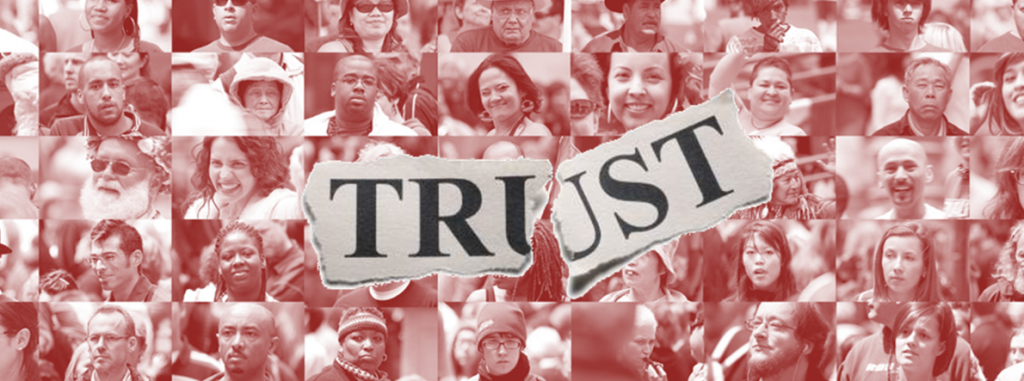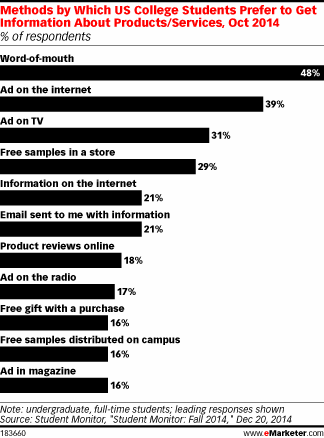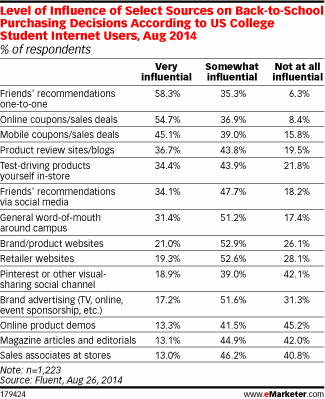“People trust people, not brand advertising.” For the last few years, marketing analysts and social media marketers have been sharing copious studies and statistics which reiterate that sentiment. They give credit to social media for this new reality and point to the “wisdom of crowds” effect, which references the observation that people tend to believe what the masses say and share on social media, despite personal experiences or empirical evidence to the contrary. If enough people hold this belief, it must be true.
We trust the wisdom of crowds, despite the fact that we neither know the people who rate restaurants on Yelp! nor have personal relationships with many of the social celebrities who boast insane numbers of followers. Similarly, we don’t personally know many of those in our social circles or the online communities we spend so much time in. Yet, we gladly stepped in line, we trusted.
However, with every passing day, it has become more evident that social media has killed consumer trust.
Pre-social media, we called this phenomenon Bandwagonsim. As defined in the Oxford Dictionary of Psychology, the bandwagon effect is a phenomenon whereby the rate of uptake of beliefs, ideas, fads and trends increases the more that they have already been adopted by others. In other words, the bandwagon effect is characterized by the probability of individual adoption increasing with respect to the proportion of people who have already done so. Social media amplifies this effect by allowing more people to become content creators and by facilitating more connections to more people.
It’s often said that “marketers ruin everything” and in this case, I tend to agree. I’m picking on marketers here but in reality, the blame could fall squarely on the lap of most businesses who sought to take advantage of social media. In their efforts to earn free media, brand awareness, “Likes,” mentions, and followers, business have attempted to create short cuts that generate faster results for less time and investment.
Social Media’s Dirty Little Secret: Cyber-Shilling
Cyber-shilling has become a lucrative business, offering those with cash the opportunity to receive thousands or tens of thousands of positive reviews, fans, followers, and 5-star ratings. Cyber-shilling continues to make news when businesses are sued for posting fake reviews and social networks are called out for not doing enough to prevent them. Forget social proof; social trust is what businesses should be focused on and that trust is eroding, fast.
Klout became popular for using gamification tactics to create and/or encourage social media “influencers.” In turn, the social scoring platform would sell access to these social celebrities in hopes that they would shill for corporate sponsors who shower them with product samples or free services. Klout is essentially a non-player in today’s social influence marketing game but newer players such as HelloSociety, Niche, and TapInfluence are stepping up. Instead of promoting influence scores, they connect businesses with content creators and help them develop and share the content that is more relevant to their audiences. Are consumers fooled?
On a more personal scale, “like-for-like” schemes are constantly in play where enterprising individuals work together to bolster each other’s social profiles in order to appear more popular, relevant, and influential.
All this worked – for a while. Businesses earned a lot of free media and brand awareness; individuals were elevated to social celebrity status. However, it didn’t take the general public long to figure out that cyber-shilling, gamified endorsements, and native advertising were real, and in no time, the inherent trust we placed in our social communities was lost.
Millennials Trust Real People
The phrase “people trust people, not brand advertising” should be updated to state: “People trust real people and real friends, not social media and/or brand advertising.” Nowhere is this more evident than among the Millennial generation, who for all their good intentions and social-do-goodness, are less trusting of what they read and see in social media.
An October 2014 Student Monitor survey queried college students about the the media through which they learn about products and services. The number one channel by which students preferred to receive product/service information was good old-fashioned word of mouth (48%). Interesting, “ads on the Internet” was second at 39%, well ahead of “information on the Internet” (21%) and “product reviews online” (18%).
In fact, when asked specifically about what most influences their back-to-school purchase decisions, the vast majority of Millennials reported that “friend’s recommendation/one-to-one” was “very influential” (58.3%). Compare that to “friends’ recommendations via social media” which was said to be very influential by only 34.1% of respondents or “Pinterest or other visual social sharing channels,” which was said to be very influential by only 18.9%.
Social Media Has Killed Consumer Trust
Clearly, the pendulum has swung back to traditional word of mouth and away from “the wisdom of crowds.”
In June of 2013, I wrote that social media has led business astray. For all its promised benefits including faster, more effective access to larger communities, it has forced many marketers down a path that leads to lower business revenue. I speculated that the bigger online communities and our social circles grew, the less influential those communities would be regarding purchase decisions.
There’s no denying that consumers are embracing social networking in greater and greater numbers. And, you cannot deny that social media is a phenomenon that has fundamentally changed the way humans communicate, learn, and live. Yet businesses and marketers may have killed the promise of riches for businesses embracing advocacy or influencer marketing strategies by their very own actions.
Sensei Debates
Is there no trust left in online recommendations and ratings?
Has social media killed consumer trust?
Sam Fiorella
Feed Your Community, Not Your Ego
The post Social Media Has Killed Consumer Trust appeared first on Sensei Marketing.





